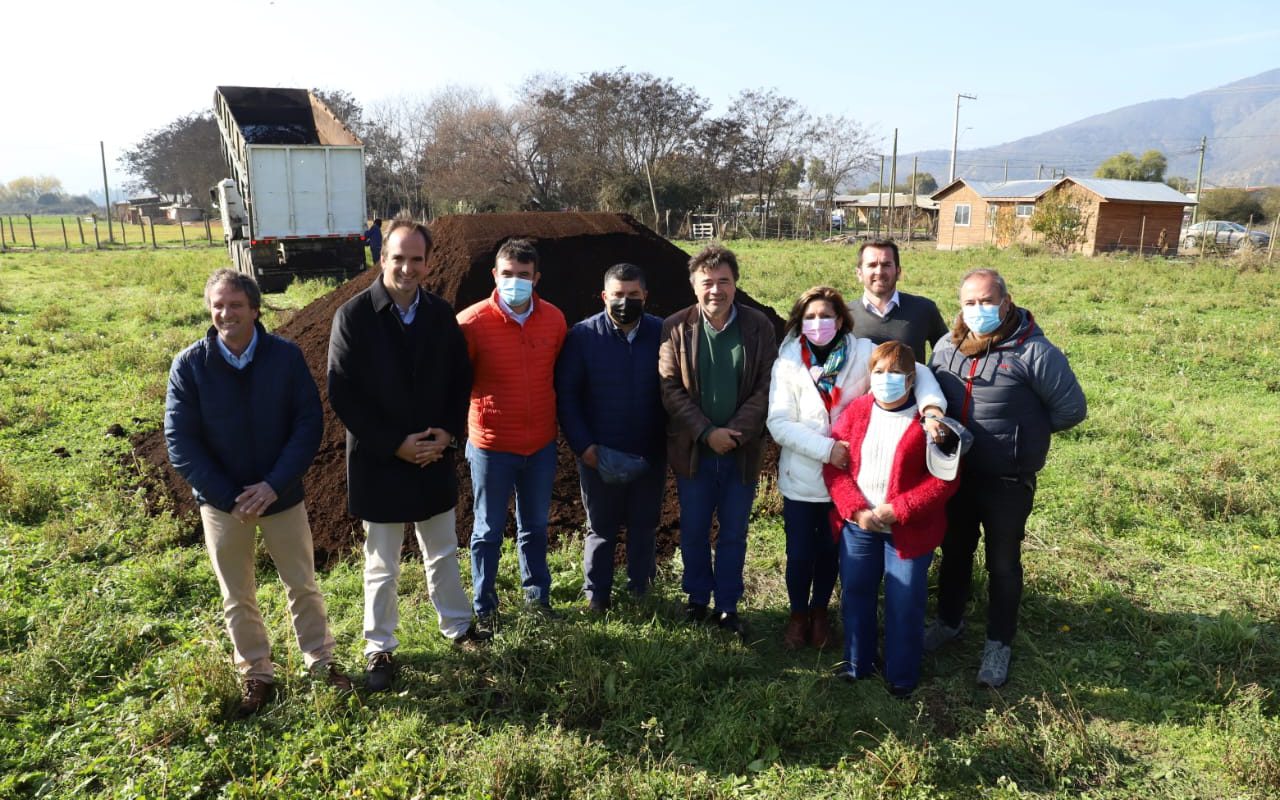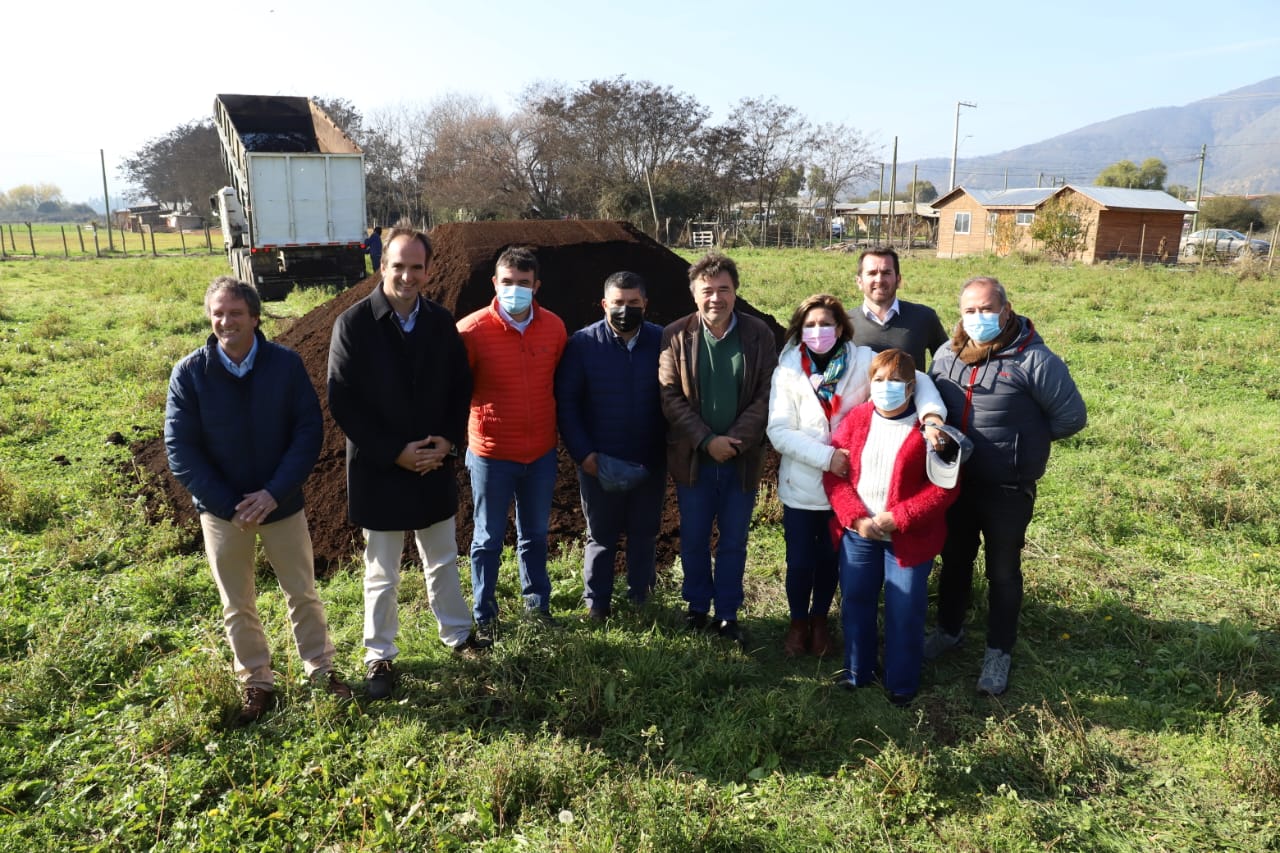
Slurry and manure emerge as alternative fertilizer for crops given global shortage
The Chilean Minister of Agriculture, Esteban Valenzuela, acknowledged the contribution of the pork and poultry industry in this area as part of a joint program between Agrosuper and the Agricultural Development Institute (INDAP) that has already benefited over 1,500 farmers. The white meat industry assists more than 10,000 farmers with these practices, of which around […]

The Chilean Minister of Agriculture, Esteban Valenzuela, acknowledged the contribution of the pork and poultry industry in this area as part of a joint program between Agrosuper and the Agricultural Development Institute (INDAP) that has already benefited over 1,500 farmers. The white meat industry assists more than 10,000 farmers with these practices, of which around 1,800 are small farmers.
The high prices and shortage of fertilizer caused by the conflict between Ukraine and Russia have forced farmers worldwide to reduce its use and/or the size of crops. During a crisis that threatens to cause food shortage, solid manure, biostabilized products, slurry, and digestates become an effective alternative to maintain production while guaranteeing better prices and high quality.
In addition, the proper use of organic fertilizers significantly reduces the use of chemicals while contributing to the circular economy.
For years, pig and poultry production companies in Chile have been developing circular processes such as fertigation, which consists of mixing pig slurry and digestates with irrigation water to be used as fertilizer, following application plans. Dry materials such as biostabilized products and solid manure are used as fertilizer for soil and crops. Their main advantage is enriching the soil with macro and micronutrients such as nitrogen, phosphorus, potassium, magnesium, calcium, and key organic matter to improve the soil’s properties and structure.
The Chilean Minister of Agriculture, Esteban Valenzuela, attended the distribution of biofertilizer in a rural community, acknowledging the contribution of the white meat industry in this area as part of the Circular Economy Program (PADEC in Spanish) conducted by Agrosuper and the Agricultural Development Institute’s (INDAP) Local Development Program. Joined by representatives from ChileCarne, Agrosuper, and the Municipality of Las Cabras (Metropolitan Region), Minister Valenzuela visited a farmer and said that “we are part of a collaboration between Agrosuper and INDAP that provides biofertilizer from the white meat industry to over 3,600 families (…) Let us sow, as now more than ever Chile needs its diverse agricultural family to provide food security via this collaborative circular economy.”
In turn, Juan Carlos Domínguez, President of ChileCarne, said: “we are celebrating the efforts that Agrosuper has been making for more than five years to support its neighboring communities with something as essential as fertilizer, particularly during times of war and a pandemic that have pushed fertilizer prices through the roof. It is very difficult for farmers to start a new crop and be productive with these prices.”
Rafael Prieto, Agrosuper’s Corporate Affairs and Sustainability Manager, added that “we are very pleased with this program. It is a way to contribute to the communities around our facilities. This wonderful project started with 11 people in the district of La Estrella in 2015, and this year we expect to reach more than 3,000.”
In Chile, the white meat production sector generates 1.3 million cubic meters of solid manure and biostabilized products, and 12 million cubic meters of slurry, which are used in agriculture mainly as fertilizer and soil organic amendment. In total, around 91,800 hectares and over 10,000 farmers are benefiting from this practice, of which approximately 1,800 are small farmers supported by the Agricultural Land Sustainability Incentive Program (SIRSD).
In particular, the Circular Economy Program implemented by Agrosuper and INDAP provides biofertilizer to farmers and agricultural entrepreneurs in Las Cabras, La Estrella, and San Pedro (Metropolitan Region) to improve the soil’s fertility and yield. The program started in 2015 and has benefited over 1,500 small farmers.
Currently, 100% of the slurry generated by the Chilean pork industry is used for fertigation and distributed to the companies’ own fields as well as farmers in neighboring communities and fields adjacent to livestock farms.
Impact of the international scenario on fertilizers
Animal by-products are carbonaceous materials that when used as fertilizer provide nutrients to the soil, mainly nitrogen, phosphorus, and potassium, thus replacing chemical fertilizers with optimal results.
According to data from Rabobank, Russia and Belarus accounted for more than 40% of the world’s potash exports in 2021. In addition, Russia accounts for about 22% of global ammonia exports, 14% of urea, and about 14% of monoammonium phosphate, all vital fertilizers.
On the other hand, Russia and Ukraine are major grain producers. They represent nearly 30% of global wheat exports and 20% of corn, mainly traded via the Black Sea, which has been interrupted for the moment. The disruption of both countries’ exports is exacerbating the soaring global food inflation.
This illustrates the extent of the global impact produced by the conflict between the two countries and its effect on production costs of numerous foods, which has led countries on various continents to turn to organic fertilizers.
In late March, the French Minister of Agriculture, Julien Denormandie, announced a series of measures to help the agricultural sector in light of the war in Ukraine. One is to give local producers nitrogen sovereignty, so they do not depend on Russian urea. The French initiative will promote the production of green fertilizers and the development of organic fertilizer value chains. The French Interprofessional Pork Council, INAPORC, has already requested the recovery of raw slurry and manure, rich in nitrogen, as agricultural fertilizer.
Meanwhile, farmers in Spain asked the government for a “regulated boost” of the use of animal by-products as organic fertilizer given the exponential rise of chemical fertilizer prices. The Union of Small Farmers (UPA in Spanish) highlights the circular and sustainable benefits of this fertilizer, saying that “it allows for significant savings and reusing a by-product.”
Given the war, and Russia and Ukraine’s significance as suppliers for animal production and the overall food sector, experts recommend planning and finding alternatives to traditional inputs, considering the great number of factors that influence the current situation, such as production, transportation, and trade vetoes.
